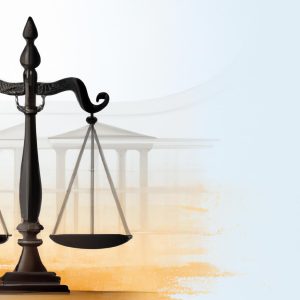In the intricate tapestry of familial relationships, the distinctions between a legal guardian and a parent play a pivotal role in shaping the well-being and future of a child. As seasoned legal practitioners at Morgan Legal Group, based in the bustling metropolis of New York City, we navigate the complex terrain of estate planning, probate, elder law, Wills, and trusts with precision and expertise. Join us as we delve into the nuanced differences between a legal guardian and a parent, shedding light on their respective roles, responsibilities, and legal implications in the realm of family law.
Legal Distinctions Between a Legal Guardian and a Parent
There are key that individuals should be aware of. Understanding these differences is crucial in various legal matters, especially when it comes to issues relating to child custody, decision-making authority, and financial responsibilities.
**Key Differences:**
- **Decision-Making Authority:** Legal guardians have the legal authority to make important decisions on behalf of the child, such as healthcare, education, and overall welfare. Parents, on the other hand, typically have natural and legal rights to make decisions for their children.
- **Financial Responsibility:** Legal guardians may be responsible for the financial support of the child, including providing for their basic needs and education. Parents, however, have a legal duty to financially support their children, regardless of the presence of a legal guardian.
Key Responsibilities and Powers of a Legal Guardian
In the realm of family law, the role of a legal guardian holds significant responsibilities and powers that are often misunderstood in comparison to those of a parent. A legal guardian is appointed by a court to make decisions on behalf of a minor or incapacitated individual. This includes making financial, healthcare, and educational decisions. Legal guardians are entrusted with the welfare and best interests of the ward, ensuring their safety and well-being.
While a parent has inherent rights and responsibilities towards their child, a legal guardian’s powers are granted by the court and can be limited or expanded based on the specific circumstances of the case. Legal guardians have the authority to make legal decisions for their ward, sign contracts, and access the ward’s financial assets. However, they are also held to a higher standard of accountability and may be required to report to the court on a regular basis. It is essential for individuals seeking legal guardianship to understand the nuances of this role and seek legal guidance to navigate the complexities of the legal system.
| Key Responsibilities | Powers |
| Ensuring welfare of ward | Making legal decisions |
| Financial management | Access to assets |
Factors to Consider When Choosing a Legal Guardian
When it comes to choosing a legal guardian for your child, there are several important factors to consider. One key consideration is the individual’s ability to provide a stable and nurturing environment for the child. This includes factors such as their living situation, financial stability, and emotional readiness to take on the responsibilities of caring for a child.
- Relationship with the Child: Consider the potential guardian’s relationship with your child, and whether they have a strong bond and connection.
- Parenting Style: Evaluate their parenting style and values to ensure they align with your own beliefs and wishes for your child.
- Location: Take into account the location of the potential guardian, as proximity to your child’s current home and school may impact their adjustment to a new living situation.
- Health and Age: Consider the guardian’s health and age, as they should be physically and mentally capable of caring for a child.
While the decision to choose a legal guardian can be a difficult one, it is essential to prioritize the well-being and best interests of your child. It is also important to consult with an experienced legal professional to ensure that the necessary legal documents, such as a Will and guardianship designation, are in place to protect your child in the event of unforeseen circumstances.
| Factors to Consider: | Legal Guardian | Parent |
|---|---|---|
| Ability to Provide Stable Environment | Yes | Yes |
| Relationship with Child | Important | Close bond |
| Parenting Style Alignment | Varies | Consistent |
| Location Impact | Potentially | Potentially |
| Health and Age Concerns | Consideration | N/A |
Legal Considerations for Designating a Legal Guardian in Estate Planning
When designating a legal guardian in estate planning, it is crucial to understand the differences between a legal guardian and a parent. While parents have natural rights and responsibilities towards their children, legal guardians are appointed by the court to make decisions on behalf of a minor or incapacitated individual. Here are some key legal considerations to keep in mind:
- Custody Rights: Parents have inherent custody rights over their children, while legal guardianship is granted by the court and can be temporary or permanent.
- Decision-Making Authority: Legal guardians have the authority to make important decisions regarding the well-being of the minor or incapacitated individual, such as medical treatment and education.
Q&A
Q: What is the difference between a legal guardian and a parent?
A: A legal guardian is a person appointed by the court to care for a child when the child’s biological parents are unable to do so, while a parent is a biological or adoptive mother or father of a child.
Q: Do legal guardians have the same rights as parents?
A: Legal guardians have many of the same rights and responsibilities as parents, but they may not have all of the same rights. For example, legal guardians may not have the right to make certain legal decisions for the child without court approval.
Q: How is a legal guardian appointed?
A: A legal guardian is appointed by the court through a legal process. This may happen if a parent is unable to care for the child due to death, incarceration, or other circumstances that prevent them from fulfilling their parental duties.
Q: Can a legal guardian become a parent?
A: In some cases, a legal guardian may adopt the child they are caring for and become their legal parent. This is a separate legal process from guardianship and requires approval from the court.
Q: What are some common reasons for someone to become a legal guardian?
A: Common reasons for someone to become a legal guardian include the death of a parent, a parent being unable to care for the child due to illness or addiction, or a parent being deemed unfit by the court.
Q: Can a parent revoke a legal guardian’s appointment?
A: A parent may be able to revoke a legal guardian’s appointment, but this would require court approval and evidence that the parent is able and willing to care for the child themselves.
Future Outlook
In conclusion, the difference between a legal guardian and a parent is a complex and often overlapping relationship. While both have the best interests of the child at heart, their roles and responsibilities may vary depending on the circumstances. Understanding the legal distinctions between the two can help ensure that children receive the care and support they need to thrive. Ultimately, whether you are a legal guardian or a parent, the most important thing is to provide love, guidance, and stability for the children in your care.





